Plant-based fish: The new frontier in meat alternatives
28 Nov 2019Plant-based meat alternatives are becoming increasingly lifelike, while fish alternatives have been left behind – but that could be about to change.
A handful of start-ups specialising in lifelike plant-based fish has emerged, aiming to emulate not only the taste and texture of fish, but also its nutritional value – an aspect that arguably has been less prominent in the development of other meat substitutes. Fish is an important source of healthy fats, and omega-3 fatty acids in particular, as well as protein, vitamins and minerals. Its nutrient density – and very specific nutrient make-up – means most people are advised to eat at least two portions a week. But it is a goal that few western consumers reach.
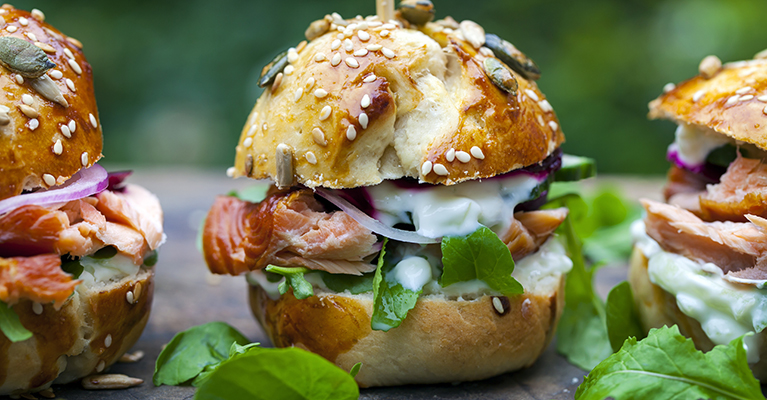
While meat analogues are big business, faux fish has been slow to catch up, accounting for only around 1% of the total substitutes market. Partly, this is because many consumers do not see a need to cut back on fish from a health perspective, and partly it is because people eat hundreds of different kinds of fish, and mimicking their exact texture and flavour so far has proved elusive.
However, a few manufacturers have taken on the challenge, and the number of entrepreneurial businesses in the category looks set to expand. In the United States, leading meat alternatives manufacturer Gardein already makes fishless filets and breaded crabless cakes, and Impossible Foods – maker of the ‘bleeding’ Impossible Burger – has set its sights on making a faux fish product that is a convincing alternative to real fish. If successful, it would join companies like Good Catch, which makes a plant-based flaked tuna alternative from a blend of six different kinds of beans, each of which adds its own character to the bite and texture of the product. Good Catch also uses algal oil to add a seafood-like briny flavour as well as omega-3 fatty acids.
Ingredient suppliers, too, already have a range of products intended for use in plant-based fish alternatives. Hydrosol, for instance, provides stabilising systems suitable for such products, while from a nutritional perspective, a joint venture from Evonik and DSM has developed a sustainable and scalable fish-free source of omega-3 fatty acids from marine algae.
The market segment looks set for a wave of innovation. Good Catch aims to develop substitutes for other fish and seafood if its tuna alternative product proves popular – and so far, it has raised over $18.7 million over three funding rounds, suggesting plenty of interest.
Ocean Hugger Foods is another US-based company working on seafood alternatives, focusing on those commonly used in sushi, with substitutes for raw tuna, salmon and eel based on tomato, carrot and aubergine respectively. Meanwhile, meat giant Tyson Foods has invested in New Wave Foods, which makes plant-based shrimp, adding to Tyson’s growing portfolio of meat alternative investments.
Those in the sector suggest that faux fish products are likely to gain in popularity in the coming years amid growing awareness of overfishing. Globally, fish and seafood consumption is at an all-time high, having more than doubled to about 20 kg per capita over the past 50 years, according to European Commission research. And the UN Food and Agriculture Organization says that about 90% of wild fish stocks are either overfished or fully exploited.
In addition, fish alternatives may find an important audience among vegetarian and allergic consumers, as well as among those looking for reduced levels of contaminants such as mercury, heavy metals and microplastics, such as pregnant women, and a broad cross section of consumers looking for more humane, sustainable and healthy protein sources.
Related news

Plastic packaging reduction requires industry rethink
6 Jan 2023
The food and beverage sector is calling for industry-wide collaboration and business model updates to reduce the environmental impact of plastic packaging.
Read more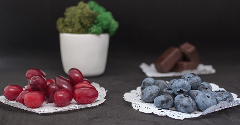
Misleading nutrition claims mask true sugar levels in baby food
5 Jan 2023
Some baby and toddler food and drink products, sweetened with fruit concentrate, contain up to four teaspoons of sugar per serving yet are marketed as having ‘no added sugar’, according to a survey by Action on Sugar.
Read more
Asian beverage brands deal with rising costs
4 Jan 2023
Decreasing bottle sizes or increasing prices? Asian beverage brands are finding “creative approaches” to manage rising costs, according to industry analysts.
Read more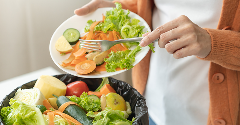
Preserving the freshness of food to fight waste
3 Jan 2023
Several companies are producing products that absorb ethylene, the hormone that causes food to ripen, in attempt to reduce food waste.
Read more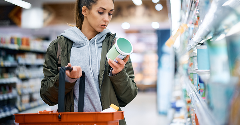
Value-seeking US consumers cut back on food spending
2 Jan 2023
Cheaper items, smaller sizes, and shorter grocery lists: inflationary effects coupled with a global long-term recession are set to continue shaping food spending habits, according to a recent Rabobank report.
Read more
Opportunities grow for lower-caffeine coffee
23 Dec 2022
Many consumers want the mental focus of caffeine without the jitters, prompting a wave of product development such as “half caffeine” ground coffee or ready-to-drink (RTD) cold brew blended with relaxing botanicals.
Read more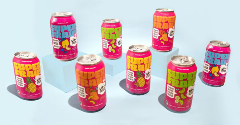
Superfrau upcycles liquid whey for energy drinks
22 Dec 2022
US company Superfrau turns surplus whey into sustainable, upcycled-certified dairy products for the recovery drinks market.
Read more
Malaysian brand Nanka brings jackfruit range to Europe
21 Dec 2022
Malaysian brand Nanka is expanding to new Asian and European markets with its fast and ready-to-eat plant-based products based on jackfruit.
Read more
Is the UK on target to meet its 2025 Plastics Pact?
20 Dec 2022
Major food industry players, including Arla, Kerry, PepsiCo and TerraCycle, have signed the UK’s voluntary Plastic Pact to reduce plastic from the supply chain – but are they on track to meet their targets?
Read more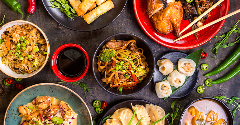
Chinese food brand wants to give customers ‘the full experience’
16 Dec 2022
Food brand Xiao Chi Jie is revamping Chinese cuisine for the modern American consumer. The Washington-based company sells regional Chinese specialties like soup dumplings, noodle kits, and barbeque skewers direct-to-consumer in the US.
Read more

